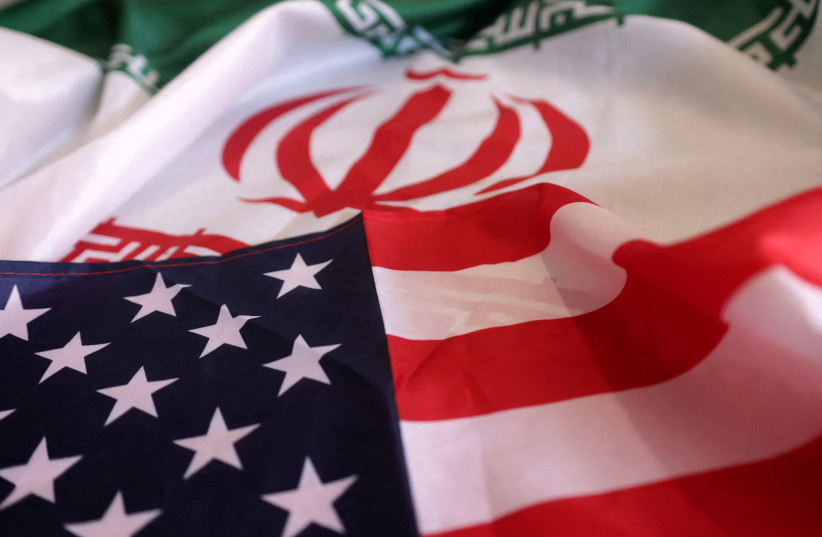Iran was a topic of discussion for many of the speakers at The Jerusalem Post Annual Conference in New York on Monday, reflecting deep concerns in Israel about advances in the Iranian nuclear program and negotiations between Washington and Tehran.
The Biden administration tried to send a reassuring message to Jewish and pro-Israel audiences, talking tough about Iran.
US Deputy Assistant Secretary of Defense for the Middle East Dana Stroul said at The Jerusalem Post Conference that the department is working “to ensure that we have an updated and credible military option to use, should we need one.”
The Biden administration prefers a diplomatic solution, she added, “but that has to be backed up with the willingness and the capability to use force, should it be needed.”
Earlier that day, US Secretary of State Antony Blinken told an AIPAC conference to applause that “as President Biden has repeatedly made clear, all options are on the table to ensure that Iran does not obtain nuclear weapons.”

The State Department, however, chose a different line of Blinken’s speech to emphasize on twitter: “We continue to believe that diplomacy is the best way to verifiably, effectively, and sustainably prevent Iran from getting a nuclear weapon."
That is the real story
That, despite all the talk of a military option, is the real story.
The US is currently in negotiations with Iran to come to an interim nuclear deal, after the sides failed to agree to return to the 2015 Joint Comprehensive Plan of Action. The new deal, as Israeli diplomatic sources said off the record in the last two weeks and Ambassador to the UN Gilad Erdan detailed on the conference stage in New York, is one in that “would put the Iranian nuclear program on hold but won’t roll back the enriched uranium or the nuclear facilities of Iran, and in exchange, they will get economic benefits.”
The Biden administration’s goal for the interim deal, Israeli sources have said, is meant to bring quiet on the Iranian front until the US presidential election in November 2024.
“This is not the way to deter Iran,” Erdan said. “We always believed that the only formula to deter Iran, a rogue and ruthless regime, is by a credible military threat.”
This would be bad news for Israel at any time, because with this kind of deal, Iran would remain on the cusp of nuclear breakout and could continue where it left off the minute that the agreement expires.
But the timing is even worse, because in October, another of the JCPOA’s sunset clauses is set to lift more sanctions on Iran. Those include restrictions on the development of ballistic missiles capable of delivering nuclear weapons, and the ban on Iran importing or exporting missile technology, including missiles and drones with a range of 300 km or more. The EU would also be required to lift its remaining sanctions on Iran’s nuclear program.
The counterweight to the Iran Deal’s sunset clauses is the SnapBack. If Iran violates the terms of the deal, then any party to the JCPOA can trigger the return of all sanctions on the Islamic Republic prior to 2015. Iran has clearly violated the very sanctions set to expire in October in exporting drones to Russia for use against Ukraine.
Of course, Iran violated the restrictions on development ballistic missiles in the past, but when the US tried to SnapBack sanctions in 2020, the other JCPOA parties argued that Washington cannot do so, because it left the Iran Deal. And with Iran enriching and stockpiling uranium far beyond the confines of the JCPOA in the ensuing deals, there still was no move to bring back sanctions.
With Tehran siding with Moscow against Kyiv, Europe has moved closer to Israel’s position on Iran, which would seem like an opportunity for France or the UK to finally trigger SnapBack in the UN Security Council.
However, if the US reaches an interim deal with Iran, the chance of that happening is very slim.
Erdan said that “the only sanctions Bering discussed are sanctions that relate to Iran transferring weapons to Russia to murder Ukrainian civilians. I do not see any path, any sanctions that are being discussed that might be imposed against the nuclear program of Iran.”
Since US President Joe Biden was elected, consecutive Israeli governments sought to hear that there is a credible military option on the table against Iran. They got their wish, but the tough talk in public is looking more like a cover for the negotiations behind the scenes that are the opposite of what Israel needs to counter the Iranian nuclear threat.
